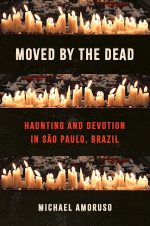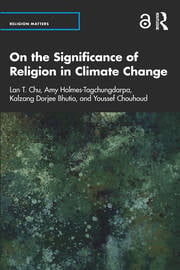In addition to teaching, RELS faculty are renowned researchers! Here's an overview of their recent scholarly accomplishments:
In April 2025, Prof. Amoruso published Moved by the Dead: Haunting and Devotion in São Paulo, Brazil (University of North Carolina Press). The book, which draws on his ongoing fieldwork in São Paulo, explores how the memory of social violence haunts the city, but also offers a resource for repair and reconciliation. Prof. Amoruso has continued to work with São Paulo social movements including UNAMCA (Union of the Friends of the Chapel of the Afflicted), the Movement of the Afflicted, and the Remedies Collective.
In April 2025, Prof. Khan was invited to present his research on corporate concentration in Islamic law as part of a speaker series at Yale Law School's Seminar in Private Law. The seminar brings together leading scholars in their fields to examine the institutional underpinnings of economic development and has featured prominent social scientists such as Daron Acemoglu, Thomas Piketty, and Danielle Allen. Prof. Khan’s contribution, which concluded the speaker series, stood out for bringing a religious studies perspective to questions typically framed within economics and law. In Fall 2024, Prof. Khan wrote a journal article on the global politics of secularism, which is forthcoming in Religion and Society: Advances in Research. In November 2024, Prof. Khan was a panelist at the Study of Islam Unit mentorship session at the annual meeting of the American Academy of Religion (AAR). The panel discussed the state of the field and the challenges of doing research, teaching, and public-facing scholarship in the context of growing academic censorship on Palestine.
As part of her ongoing research project related to Buddhism in the Himalayas and the anthropocene, Prof. Holmes-Tagchungdarpa released a new co-written book, On the Significance of Religion and Climate Change with her colleagues and co-authors Lan T. Chu (from Oxy’s own DWA Department), Kalzang Dorjee Bhutia, and Youssef Chouhoud. The book explores how different religious communities understand and approach climate change from cross-disciplinary perspectives. The chapters on Indigenous religions, Islam, Buddhism, and Christianity demonstrate the many ways religious communities can make important interventions in the development of climate change response on different scales, from local grassroots initiatives to globally connected institutional policies. The book is available open access here.


